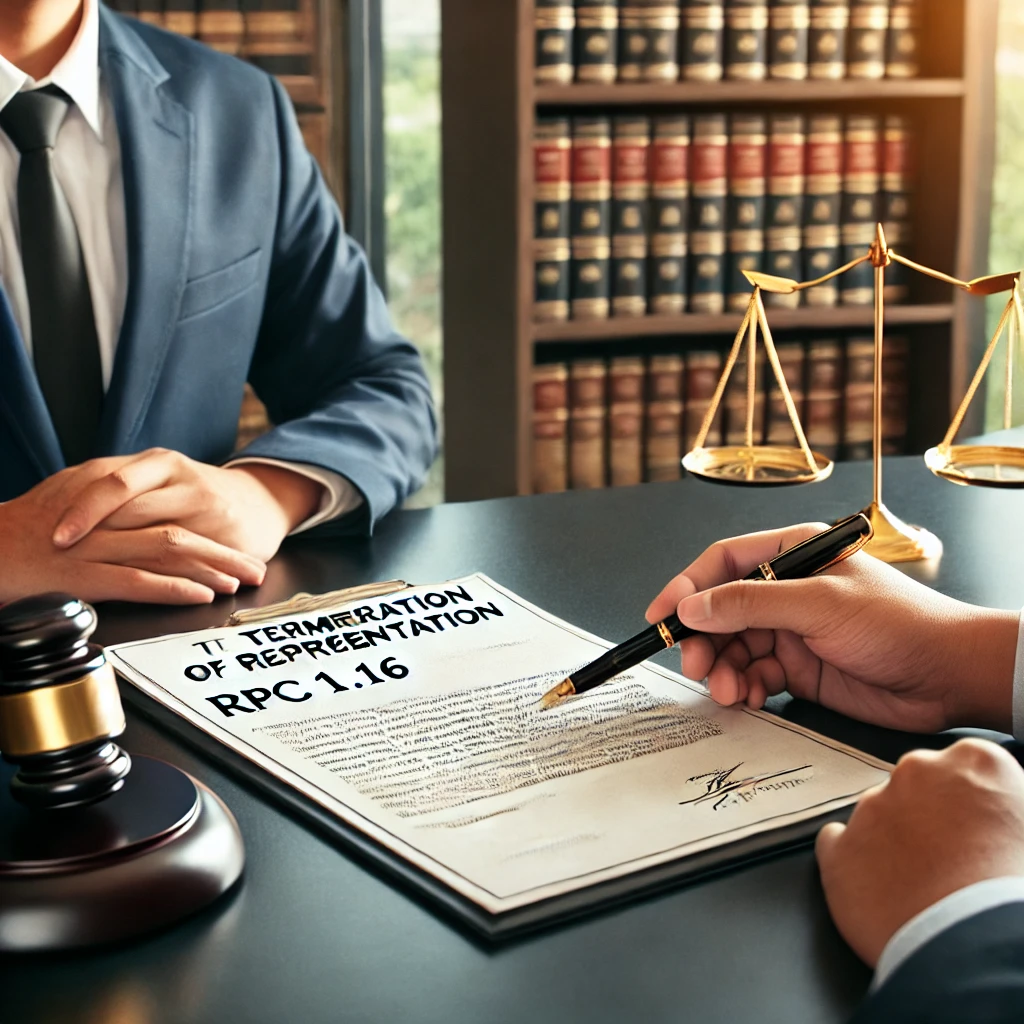In Washington State, RPC 1.16 outlines the ethical standards that lawyers must follow when declining or terminating representation of a client. This rule ensures that lawyers maintain professional and ethical conduct when withdrawing from a case, while also protecting the client’s interests. Understanding RPC 1.16 is crucial for both attorneys and clients to ensure legal representation is handled with integrity.
Key Aspects of RPC 1.16
Mandatory Withdrawal
Under RPC 1.16(a), an attorney must withdraw from representation if continuing would result in a violation of ethical standards or legal obligations. This includes situations where the lawyer is unfit to handle the case due to a lack of competence, or if continuing would involve unethical or illegal actions.
Permissive Withdrawal
RPC 1.16(b) allows a lawyer to terminate representation under certain conditions, such as when a client fails to meet obligations (e.g., non-payment of fees) or engages in unethical conduct. The lawyer may also withdraw if continuing would create an unreasonable financial burden or if the client’s actions significantly affect the lawyer’s ability to represent them effectively.
Protecting Client Interests Upon Withdrawal
Even when terminating representation, RPC 1.16(d) requires the lawyer to take steps to protect the client’s interests. This includes giving reasonable notice, returning unearned fees, and ensuring that the client has enough time to secure new representation. The attorney must ensure that the withdrawal does not unfairly harm the client.
For a complete understanding of this rule, you can review RPC 1.16 on the Washington Courts website here.
Why RPC 1.16 Is Important
RPC 1.16 ensures that lawyers maintain high ethical standards when declining or terminating representation. It provides a framework for protecting both the lawyer’s and client’s rights, ensuring that attorneys act responsibly when ending their role in a case. The rule helps prevent clients from being left without adequate legal support, even in difficult circumstances.
Blanford Law: Committed to Ethical Legal Representation
At Blanford Law, we adhere to the strictest ethical standards in compliance with RPC 1.16. If you’re considering changing legal representation or need advice on your case, our experienced attorneys will protect your rights and ensure a smooth transition. To learn more, visit our client reviews.

Additional Resources
- Bail Bond Agency Branch Licensing in Washington
Understand when and how a bail bond agency must obtain a branch license under Washington administrative regulations. - Why Unpublished Opinions Cannot Be Cited in Washington State Courts
Learn about the legal limitations on citing unpublished appellate opinions in Washington court proceedings. - Ghostbusters and Criminal Law in Washington
Explore the fictional offenses committed in Ghostbusters and how they’d be charged under Washington State law. - WAC 308-19-420: Disciplinary Proceedings for Bail Bond Agents
Discover the disciplinary procedures and possible penalties facing bail bond agents under WAC 308-19-420. - Out-of-State Bail Bond Agents in Washington
Find out what licensing and legal requirements apply to bail bond agents operating in Washington from another state.
